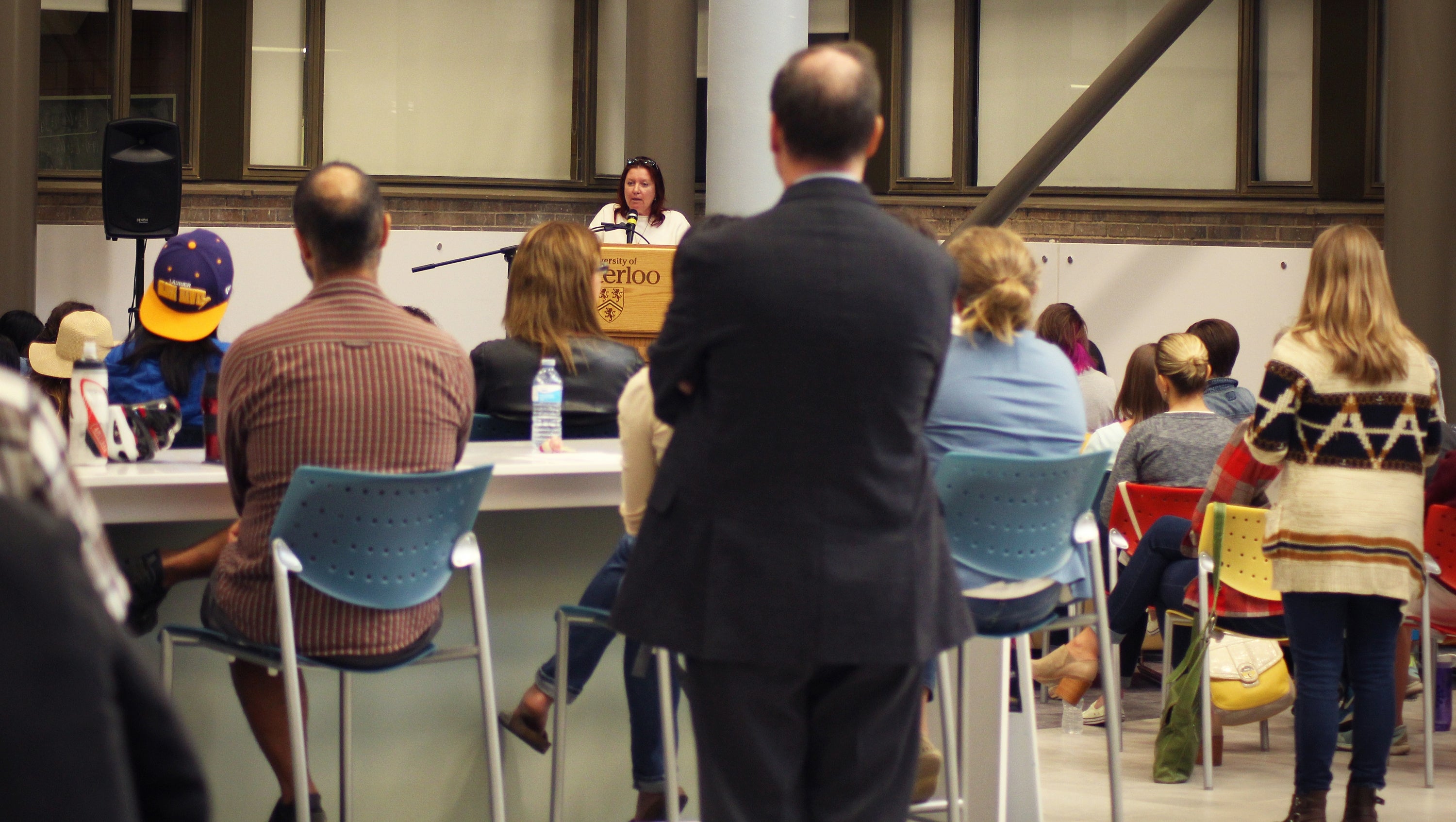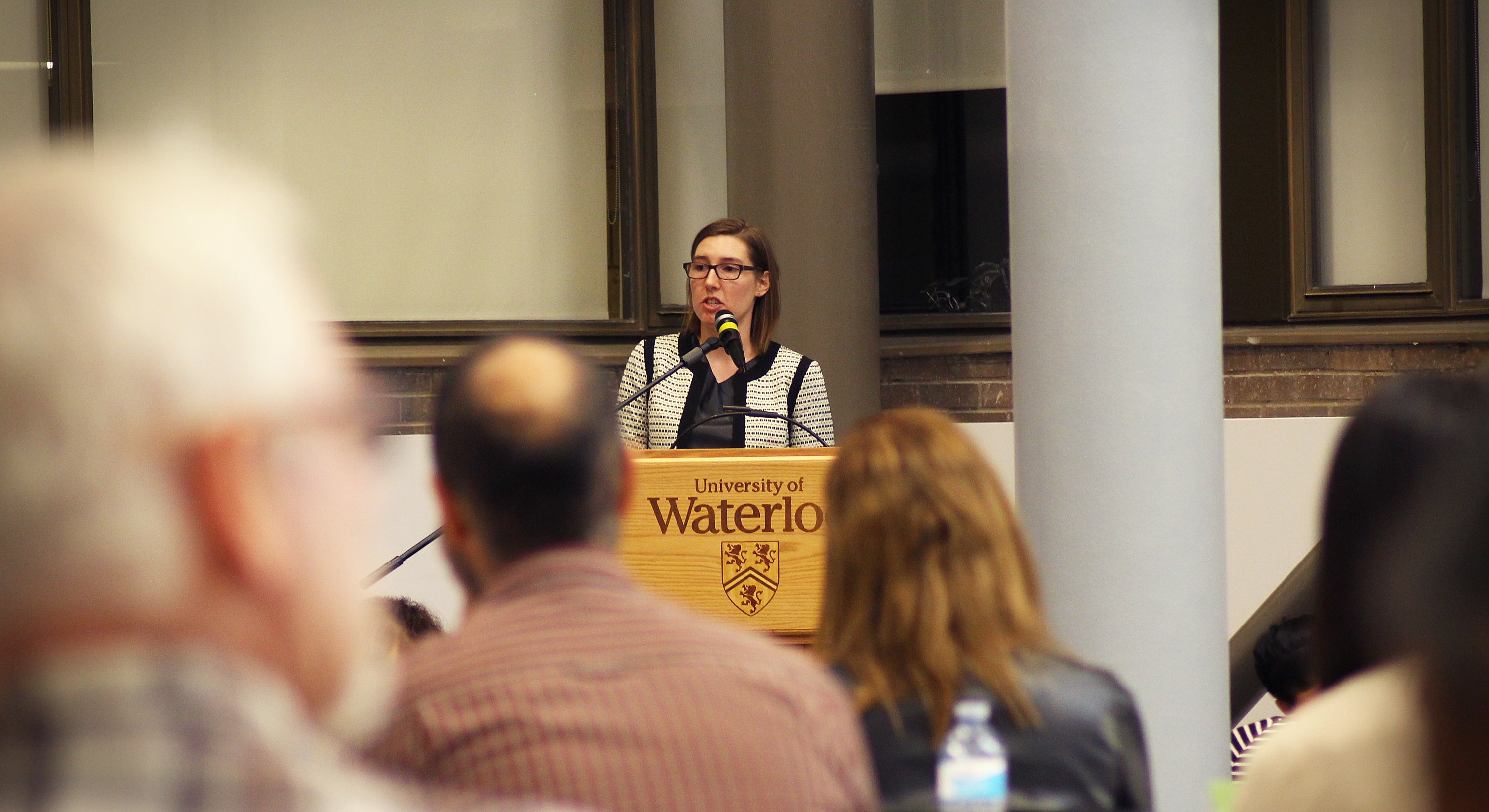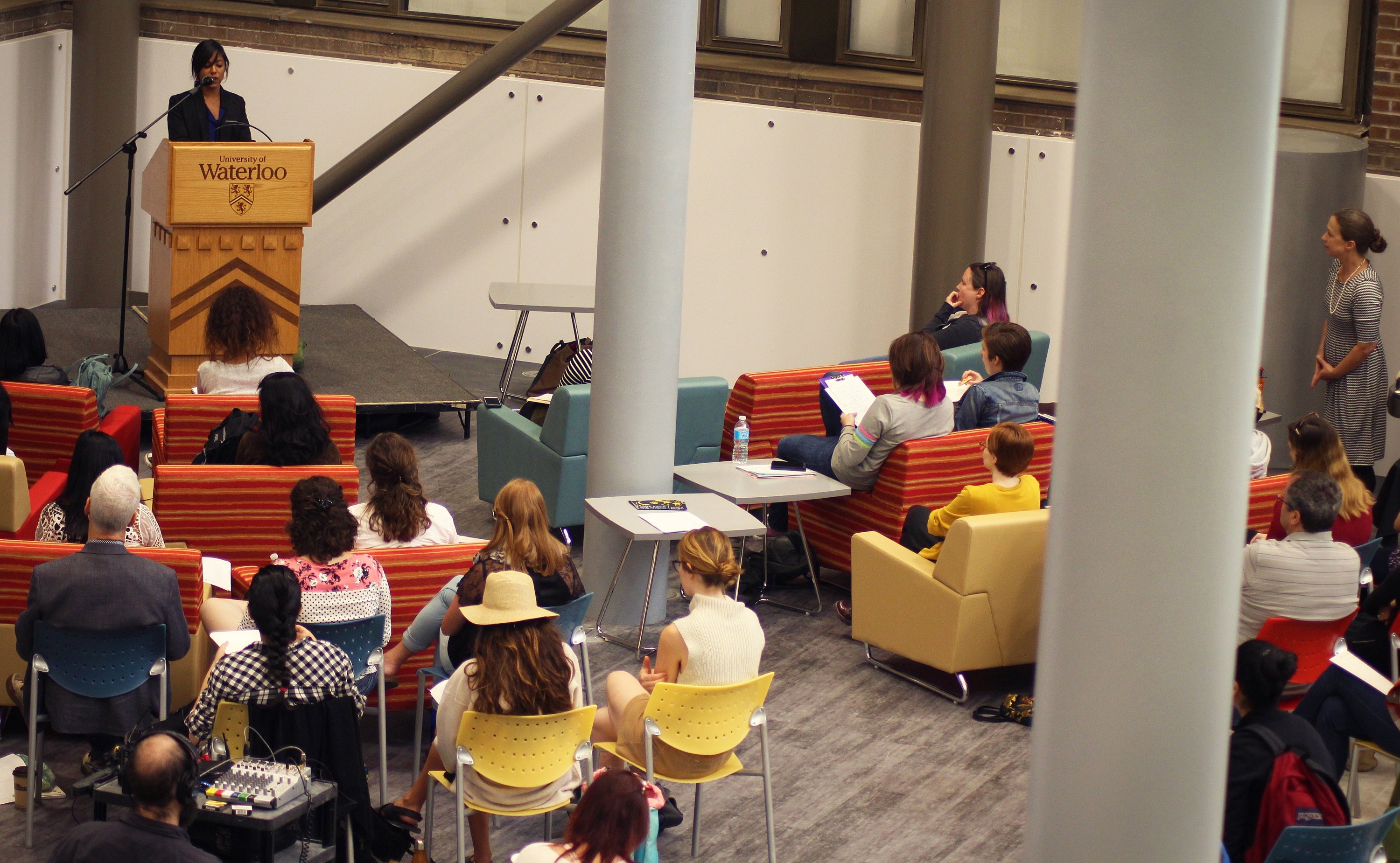Universities are one of the few places where people can speak frankly about hard-to-talk-about problems, says Tim Kenyon, associate dean of research and a professor of philosophy. It’s for this reason that the Faculty of Arts tackled a topic that has received a lot of attention recently: rape culture.
Fourteen instructors spoke for 15 minutes each on a topic related to rape culture at a teach-a-thon, held Sept. 16 at 10 a.m.

History professor Julia Roberts spoke about rape culture and drinking in colonial public space. 'Right here where we are standing, it was illegal for a women to own her own property, to own her body in terms of reproduction.'
Kenyon says the ability to talk frankly about challenging topics demonstrates the importance of universities in the community.
“There’s so much hand-wringing, pearl-clutching commentary about how in university, nobody wants to talk about difficult topics and students are coddled and they want a trigger warning and a content warning and a safe space before they can be talked about,” says Kenyon. “It’s utter nonsense, it’s absolute nonsense.
"It’s almost impossible to find any other kind of institution in society where it’s easier to talk about hard-to-discuss topics than at a university."

Questions of rape culture are often given scholarly treatment in the work of academics on campus. Student and administrative groups have also made attempts to mitigate that culture, through education and training. But the Faculty of Arts was looking for ways to help too, and the dean felt the best way to contribute was through education.
“We understand rape culture as not just the topics in a public service announcement,” says Katherine Acheson, associate dean of undergraduate studies and a professor of English.
It’s not just about watching what people might put in your drink at a party in frosh week. For us, as teachers, intellectuals and researchers, rape culture is a feature of so many of the areas that we deal with.
The teach-a-thon featured professors and instructors from many disciplines. Topics ranged from rape culture and Twitter, rape culture and Game of Thrones to rape culture and war, among others.
Acheson spoke about rape culture and the tragic hero in literature. Sexual violence and misogyny are normalized in these stories, she argues: “rape culture is the enabling condition for the emergence of the tragic hero.” She pointed to examples of this in Othello, Oedipus Rex and Hamlet.
Trevor Holmes, an instructional developer for the Centre for Teaching Excellence and an instructor in Women’s Studies, spoke about rape culture and vampire fiction. He says it's easy to find examples of rape culture in some present-day fiction, such as Twilight, where characters toe the line between seduction and violation.
There are other, less obvious, ways that rape culture plays out in vampire fiction. Holmes explores how in Dracula, it's not only the vampire who reinforces rape culture but the heroes of the novel. In these examples, women often lose agency over their bodies and are punished for their desires. Lucy is killed by the heroes after she is bitten and becomes a vampire herself. Bella, in the Twilight series, turns gravely ill when she becomes pregnant with a half-human, half-vampire child, says Holmes.
"Rape culture is not always in the obvious assaultive behaviours of the stranger in the bushes, it’s also in the way women don’t have agency over their own bodies."

Rashmee Singh spoke about rape culture and law. A study of convicted rapists, she said, showed many of them don't think rape is a big deal.
Though vampire fiction might take place in another world, it is always a reflection of our own world, says Holmes. “When rape or near rape is portrayed in vampire literature or vampire pop culture, sometimes it’s reiterating rape culture, but other times it’s helping us unpack it in our own world.”
Philosophy professor Kenyon spoke about rape culture and ignorance. While it may not be conscious, we have all sorts of strategies to remain ignorant on subjects we’d rather not know more about, whether it’s the experience of sexual assault victims or the story behind the food on our plates.
“We make decisions with our thumb when we’re pushing the remote when we’re watching TV, we make decisions with our index finger based on what we click on or don’t when we’re browsing the web,” says Kenyon. “These are not random, they are not accidents. We move from one source of information to another in ways that are not just a function of what we want to know, they’re also a function of what we want not to know.”
Holmes says universities have a responsibility to not shy away from challenging topics. “We have a role to play in making a space for these conversations. It’s the university’s role in society in taking the lead on these conversations and not just sit back and study things theoretically."